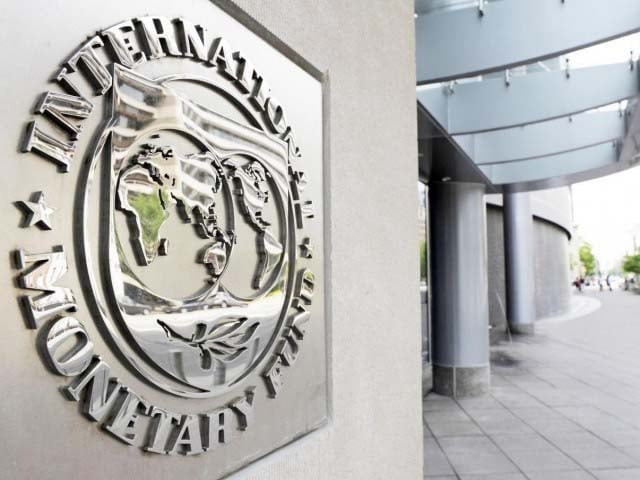IMF finally approves $6 billion package for Pakistan
Lender to immediately disburse $1 billion out of total package

International creditor approves loan to support Pakistan’s economic plan and improve standards of living. PHOTO: FILE
The IMF will immediately disburse the $1 billion out of $6 billion total package. The remaining $5 billion will be linked with successful completion of quarterly and semiannual reviews, according to an announcement by the global lender.
The IMF Executive Board approved a 39-month extended arrangement under the Extended Fund Facility (EFF) for Pakistan for an amount of SDR 4.3 billion or about $6 billion or 210 per cent of the quota to support the authorities’ economic reform programme.
Pakistan already owes nearly $5.9 billion to the IMF and $750 million of them will be returned in new fiscal year 2019-20. The first review of on the implementation of the IMF programme may tack place in October in which the IMF will gauge performance on agreed targets for July-September 2019 period.
With the approval of the IMF programme, Pakistan has formally entered into a new phase of slow economic growth, high inflation and high unemployment rate – the outcomes of stabilisations policies.
But the programme will give much-needed stability to the economy besides opening closed avenues of borrowings from international capital markets to meet the growing financing needs.
The IMF package will also strengthen the Finance Ministry’s hands to ensure fiscal discipline.
The Executive Board meeting that approved the programme was held in Washington. The programme is believed to be the toughest package in all 22 loans that Pakistan and the IMF have so far signed.
The IMF will monitor implementation on the programme through four quarterly reviews and four semiannual reviews that will keep the government of Pakistan Tahreek-e-Insaf (PTI) in a tight spot.
The PTI government has joined the league of the last two democratic governments of Pakistan Peoples Party (PPP) and Pakistan Muslim League-Nawaz (PML-N) that knocked the IMF door to avoid default on international obligations.
Under the IMF programme, the Finance Ministry will not be allowed to borrow from the State Bank of Pakistan (SBP) even for debt servicing, a source told The Express Tribune on Wednesday.
“The EFF-supported programme will help Pakistan to reduce economic vulnerabilities and generate sustainable and balanced growth,” said the IMF.
It added the EFF programme will focus on “a decisive fiscal consolidation to reduce public debt and build resilience while expanding social spending; a flexible, market-determined exchange rate to restore competitiveness and rebuild official reserves; to eliminate quasi-fiscal losses in the energy sector; and to strengthen institutions and enhance transparency.”
The IMF handout has confirmed that the SBP will implement a ‘flexible market-determined exchange rate’, which would stop the central bank from intervening in the market.
A senior official of the Finance Ministry said the central bank will still have the right to check speculative activities but the exchange rate will be determined by the economic fundamentals.
The rupee has already shed nearly 35% value in last fiscal year after the Finance Ministry decided to end its policy to defend the rupee value.
The other key pillar of the programme will be fiscal consolidation that will largely hinge upon the FBR’s ability to achieve Rs5.50 trillion tax collection target. The IMF will monitor implementation of this condition through quarterly reviews.
The failure to achieve the quarterly revenue collection targets would expose the government to the IMF pressure to take new taxation measures. The FBR’s tax-to-GDP ratio dropped to five-year low of 9.9% of the GDP at the end of last fiscal year.
From 9.9% of the GDP, the FBR will have to increase the ratio to 12.6% within one year, which is a key target of the IMF programme.
Under the IMF programme, the government will be bound to end circular debt of over Rs1.4 trillion by December 2020. The government has already twice increased the electricity prices –a trend that will now further continue on quarterly basis.
The government will guarantee autonomy to the SBP and there will be greater freedom on movement of foreign exchange by removing restrictions on outbound repatriations of profits by companies.
“The engagement with the IMF will pave way for Pakistan’s access to international capital markets and concessional funding from multilateral and bilateral development partners.
“The IMF programme will ensure higher foreign direct investment, remittances and exports that will reduce Pakistan’s reliance on debt creating instruments,” said Finance Ministry spokeperson Dr Khaqan Najeeb.



















COMMENTS
Comments are moderated and generally will be posted if they are on-topic and not abusive.
For more information, please see our Comments FAQ